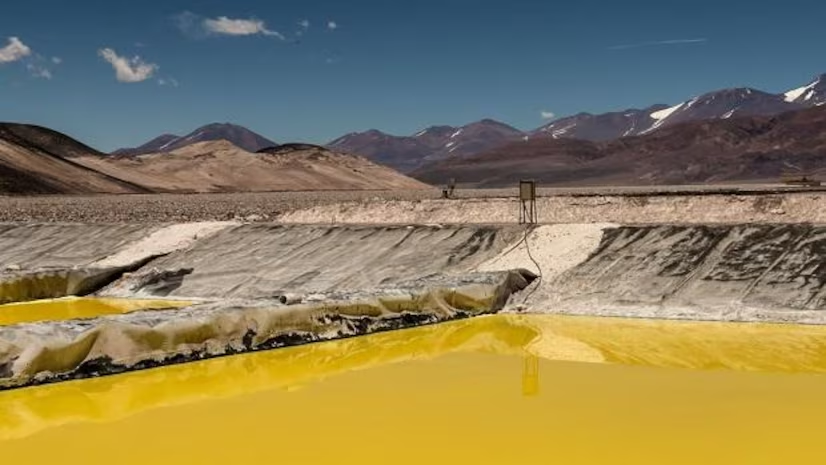India–US Trade Tensions Rise Over Steel and Auto Tariffs NMDC Limited reports a 38% drop in Q4 FY24 consolidated net profit RINL to Raise $23 Million Through Land Sales Amid Crisis

The Mines Ministry of India has started the process of bringing in local partners to begin lithium exploration in Argentina, aiming to reduce dependence on imports and boost green energy. The state-owned KABIL (Khanij Bidesh India Ltd), a joint venture between NALCO, Hindustan Copper, and Mineral Exploration Corporation Ltd (MECL), which is driving the process, purchased five lithium brine blocks in January 2024: Cortadera-I, Cortadera-VII, Cortadera-VIII, Cateo-2022-01810132, and Cortadera-VI.
According to a government official, KABIL will also open a branch office in the Latin American country. "The estimated cost (for development and exploration) is about ₹200 crore which will be spread over a five year period," the official said.
The brine blocks cover an area of about 15,703 hectares in the Catamarca district of Argentina. Blocks were acquired for exploration and development, and off take of lithium, from their state-owned entity, CAMYEN (Catamarca Minera Y Energetica Sociedad Del Estado).
The official said Argentina's laws mandate the “involvement of local partners” across stages like exploration and development and in other processes. The local exploration agency will be responsible for obtaining the necessary clearances (and other government-mandated approvals) and will also start drilling activities after these.
“We (India) have obtained exploration and exclusivity right for these five blocks. The agreement will allow us to evaluate, prospect and explore the reserves. And upon subsequent discovery of lithium mineral, right for commercial production has also been allowed. So we are in the process of on-boarding a local partner who will get the approvals, and start the process,” the official said.
Lithium, known as “white gold” is said to be amongst the corner stone of India’s switch to green energy and reduction in carbon footprint. Lithium is used extensively as energy storage solutions, batteries and so on across segments like mobile phones, electric vehicles, etc. India’s lithium requirements are currently met through imports, with the bill running to around ₹24,000 crore annually. Most of the supplies come from China.
The MoU states that KABIL has a five-year timeframe within which exploration activities across these blocks have to start, failing which “hefty fines” have to be paid. “There are confirmed reserves across the blocks that we have acquired. Studies by the government there and by our geologist confirm the findings,” the official said.
Also Read : Trump’s Steel Tariffs May Flood Asian Markets with Surplus Metal Thermal coal prices expected to decrease in 2024 due to surplus supply